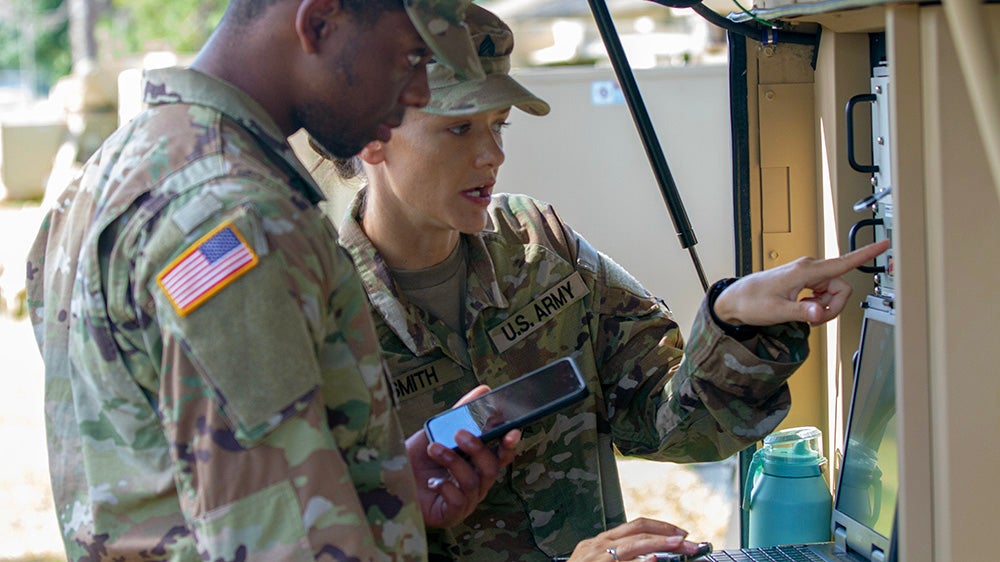Data Analytics Have Expanding Role
Data Analytics Have Expanding Role

Irregular warfare is uncomfortable and unpredictable, and the Army’s special operations forces are learning, training and adapting for that fight on a future, multidomain battlefield, a panel of experts said.
This shift began in earnest as operations wound down in the Middle East, said Maj. Gen. Patrick Roberson, deputy commanding general of Army Special Operations Command. “As the wars in Iraq, Afghanistan and Syria calmed down, it gave us a chance to reflect—what did we learn and want to keep from our time in [Central Command’s area of operations], and what do we need to change? What do we need to ramp up? What lessons did I learn, how do I apply those lessons today, and how do I use them in the future?”
Speaking as part of a panel discussion at the Association of the U.S. Army’s 2023 Warfighter Summit and Exposition in Fayetteville, North Carolina, Roberson said DoD defines irregular warfare as a violent struggle among state and nonstate actors for legitimacy and influence over a population.
Using this definition, Army Special Operations Command is “constantly changing” the way it trains and prepares its forces, Roberson said. “I want to be able to modify my force of the future for great-power competition,” he said. “That requires change at the training base, change in some formations, change in some technology and innovation that we’ve got as well.”
Roberson cited as an example the continuing rise—and evolution—of drone and signals technology and the importance of data and data analytics. “That’s even more important than it’s been,” he said.
Partnerships are another critical piece to irregular warfare, Roberson said. “There’s a technological piece to irregular warfare, but there’s a partner piece and a human dynamic.”
Deep, enduring partnerships with allies around the world are critical, he said. Ukraine is a prime example, Roberson. Since the annexation of Crimea in 2014, U.S. special operations forces have been working with Ukrainian special operations forces, he said. “A lot of irregular warfare things we do are not quick, fast, rapid, they take a long time,” he said.
Over the years, U.S. troops helped Ukraine change its special operations force structure, build a schoolhouse and also work with NATO partners in the Baltic states, Roberson said. “Having those partnerships in the region helped us to change Ukraine and reform their special operations forces and their law to be able to resist the Russians,” he said.
As Army Special Operations Command continues its work, it’s important to “get different people to talk about irregular warfare,” said Carolyne Davidson, associate dean of the College of International Security Affairs at the National Defense University.
“Irregular warfare is uncomfortable. It’s hard to measure its effect, it’s hard to explain, it’s hard to define, but it continues to be essential and not a tangential part of warfare,” Davidson said.
There’s no telling when a crisis might occur, Davidson said, and irregular options and activities should be part of the U.S. military’s thinking and planning. “Our adversaries are thinking about irregular warfare,” she said. “We should not be ceding that intellectual terrain, the way we think about warfare, to them.”

